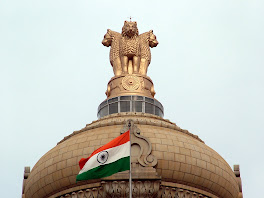The New Delhi SceneThe drama has currently shifted to New Delhi. Acontroversy obtains over how the provisions of theamended American law are prejudicing India’snational interests. Since India will gain access tonuclear technology and legitimacy for its nuclearweapon status without joining the NonproliferationTreaty or accepting fullscope safeguards, why isNew Delhi looking the gift horse in the mouth?Why is a strange coalition of the Left and Rightparties in India opposing the US legislation, apartfrom a group of former AEC officials? Each ofthese entities has its own agenda. Briefly, the Leftparties are driven by ideological compulsions tooppose any steps by India to improve its relationswith the UnitedStates. Nocontradiction isseen betweensuch negativismand wooingAmericanbusiness to theCommunist-ruledstate of WestBengal. Similarly,the BJP, now inOpposition, findsno contradiction in opposing the nuclear deal,despite having initiated steps to deepen bilateralIndo-US relations when they were in power during1998-2004. They are now animated by the desireto oppose everything the Congress-led UPAgovernment does. The former AEC officials are informed by an exaggerated ultra-nationalism,which really conceals their animus against theUnited States for having treated them as pariahsafter the Pokharan I nuclear test in 1974.Importantly, are they providing an alibi for the UPAGovernment’s own predilections? This doubt arisesbecause it could easily ignore the Left parties andthe BJP. Neither is really prepared to bring downthe UPA Government and face new elections.The objections voiced in New Delhi to goingbeyond the literal provisions of the 18 July 2005nuclear deal and the 2 March 2006 separationplan have been voiced by many parties, andspecifically by the Prime Minister in Parliament on17 August 2006, Sonia Gandhi outside Parliamentand, most recently, by the Foreign Minister inParliament on 12 December, 2006. They do notseem to appreciate the tortuous legislative historyof the amended American law. Indeed, theForeign Minister noted “certain extraneous andprescriptive provisions in the legislation,” beforethrowing the gauntlet that India’s objective “isthat technology denial regimes that havetargeted India for so many decades must bedismantled.” But the qualifications in this legislationembody the compromises made by Americanlawmakers to finalize a very divisive amendinglaw, balancing the political interests of the Bushadministration, business interests of the nuclearindustry, and the ideological interests of the nonproliferationlobby. This is the divisive backdrop tothe 123 negotiations between India and theUnited States, impinging on the parallelnegotiations proceeding with the IAEA to finalize asafeguards agreement to govern India’s nuclearprogram, and India’s efforts to secure supportfrom individual member-countries to exempt Indiafrom the provisions of the NSG Guidelines.


No comments:
Post a Comment